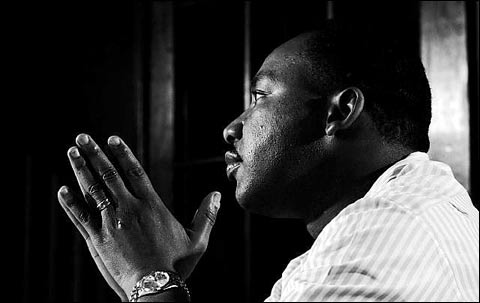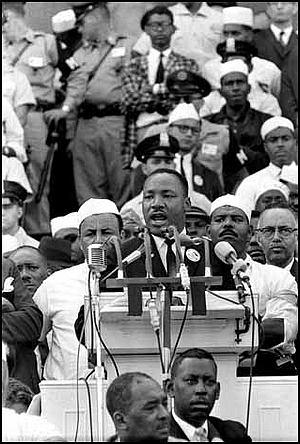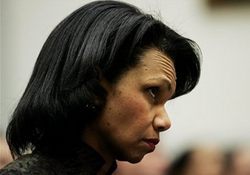| Sun | Mon | Tue | Wed | Thu | Fri | Sat |
| 1 | 2 | 3 | ||||
| 4 | 5 | 6 | 7 | 8 | 9 | 10 |
| 11 | 12 | 13 | 14 | 15 | 16 | 17 |
| 18 | 19 | 20 | 21 | 22 | 23 | 24 |
| 25 | 26 | 27 | 28 |
After participating as counsel in five coroner's inquests lately, here are some of my opinions on the process:
1. It takes far too long. It now takes years before a coroner's inquest is held into a death. When Larry Campbell was Chief Coroner, it took an average of about seven months to hold an inquest.
2. In police-involved deaths, the coroner's office defers to the police and lacks independence.
3. The family has no access to legal aid for legal representation. Typically, all the other participants and their counsel receive public funding from the taxpayer for their lawyers.
4. The family of the deceased is not entitled to make any submissions to the jury or suggest any recommendations to it.
5. The family cannot view documents unless it signs a promise not to disclose their contents. This despite the fact an inquest is supposed to be a public hearing designed to assure the community that the circumstances of a death are not overlooked, concealed or ignored.
6. The manner of selecting the five person jury is a mystery.
7. The jury's recommendations are not binding. The provincial government has ignored jury recommendations made in 2004 that the police not be allowed to investigate themselves in police-involved homicides and that the family be given public legal aid funding, among others.
In conclusion, the process is most unsatisfactory from the family's point of view. If reforms are not made, I doubt the utility of any family participating in any future coroner's inquests in the province.
I picked up the Vancouver Sun today and, as usual, paid particular attention to stories about the justice system. Here are two paragraphs that caught my eye:
"Former teacher Tom Ellison was sentenced Friday to house arrest for sex crimes against teenage students at Prince of Wales high school in the late 1970's and early '80's" -page A1
"The group of 16 protesters appeared stunned as B.C. Supreme Court Justice Brenda Brown sentenced Squamish elder Harriet Nahanee to 14 days for her part in disobeying a B.C. Supreme Court injunction telling protesters to stay away from [Eagleridge Bluffs] on May 25 of last year." page B3
Hmm...I have spent more time in jail (five hours) than convict Tom Ellison will, and I wasn't charged, let alone convicted, for anything at all.
As for 70 year old Harriet Nahanee, does punishment of 14 days in jail fit the crime resulting from the act of standing with others to try to prevent the blasting of a sensitive environmental area?
I would like to use this space to try to answer this question and explain these sentences, but my law degree and only 22 years of courtroom experience leave me ill equipped for the task.

"I have a dream that one day this nation will rise up and live out the true meaning of its creed: 'We hold these truths to be self-evident, that all men are created equal.'"


There was some measure of satisfaction in seeing Condoleeza Rice glare at her Democratic inquisitors in Thursday's hearings before the Senate Foreign Relation Committee. However, the Democratic inquisition is far too little, far too late. Where were they before March 20, 2003, the date Bush started bombing Baghdad? Where were they during Colin Powell's embarassingly ridiculous dog and pony show at the UN, when he held up a vial of powder and spoke breathlessly about Saddam's mobile weapons of mass production laboratories? The answer is, the Democrats were asleep at the switch.
I remember those days before March 20, 2003 very well, as I was but one of millions of ordinary people who took to the streets in demonstrations worldwide, naively hoping that mass public disapproval could stop the impending idiocy. Then, the Democrats and the American media were all supporting Bush's insane decision to invade a sovereign Middle Eastern nation that posed no threat to the United States and, by all accounts, was a relatively peaceful place. Before March 20, 2003 there were no reports of scores of Iraqis dying in the streets, no reports of terrorist activity in Iraq whatsoever.
The Democrats' belated opposition to Bush's stupid and illegal war comes only because it is expedient now that they have regained some political power. It is far too late for the three thousand young Americans who have died, the twenty thousand or so who have been maimed and, though Iraqi lives are apparently much less important than American ones, for the sixty thousand or so Iraqi civilians who have died horrible and needless deaths.
Dr. Rice may indeed be glaring at her inquisitors, but she should be doing it from the dock, alongside Bush, Cheney, Rumsfeld and Wolfowitz. Some day maybe, there will be an effective international criminal court that will be able to deal effectively with politicians who unleash terror on civilian populations.
I have now had several days to digest the decision of the Supreme Court of British Columbia holding that my constitutional rights as a Canadian citizen were violated when the Vancouver police seized my car, strip searched me and held me in jail as result of an unfounded suspicion that I might throw a cream pie at the Prime Minister of Canada. The decision can be found here:upload
The events of August 2, 2002, the day the incident happened, have changed my life and outlook forever. The entire odyssey has dramatically affected the way I perceive the justice system. Although I would not want anyone else to go through what I have endured in the last four and a half years, every police officer, lawyer and judge would benefit immeasurably from a similar experience.
I was a law-abiding citizen with no criminal record when the police confronted me and put handcuffs on my wrists, snatched me off the street, strip-searched me and put me in a 3'x6' jail cell, with no furnishings whatsoever, for a day. They ignored my requests to call a lawyer and my questions as to why I had been arrested. Despite what the judge concluded, I categorically did not raise my voice before I was handcuffed, so iI dispute that I "breached the peace". After I was handcuffed, I shouted, not to attract media attention, but in the hope another citizen would intervene on my behalf and ask the police to explain themselves.
The day after the events occurred, I asked for an apology. When the VPD refused to apologize I lodged a formal complaint and then started a civil action. Following a police investigation, my formal complaint was dismissed as unsubstantiated. I tried to get the civil case dealt with in a summary one day proceeding (under our Rule 18A) and offered to abandon all issues other than the strip search, but the defendants argued that a full fourteen day trial was necessary. Their lawyers examined me for discovery over three days and the trial itself finally began in the fall of 2006.
Here are some of the fundamental things that have been driven home to me as a result of this experience:
Police can be arrogant and abusive towards citizens with relative impunity.
When an incident becomes the subject of a trial, what police officers testify happened and what actually happened can be very different indeed.
Given the propensity of judges to prefer the testimony of police officers over ordinary citizens, and given the powers police officers exert over suspects (refusing to let them call a lawyer, holding them for hours in a 3'x6' concrete box), it's very easy to see how false confessions can be extracted and how people can be wrongfully convicted.
The civil justice system is too slow and too expensive. It favours those with deep pockets and is out of reach for most ordinary people.
The police complaint system in British Columbia is utterly ineffective and needs to be reformed immediately.
What happened to me can happen to anyone unless all of us remain vigilant in demanding that our rights and dignity be respected by those who hold positions of power and authority.
In a decision released today, Mr. Justice Tysoe of the Supreme Court of British Columbia has declared that Mr. Ward's constitutional Charter rights were violated when he was imprisoned and strip-searched and when his car was seized on August 1, 2004. The judge awarded damages totalling $10,100 against the defendants, the City of Vancouver and the Province of British Columbia.
The incident occurred on Vancouver's east side, near an event attended by former Prime Minister Chretien. The police apparently believed that Mr. Ward, a Vancouver lawyer with an unblemished record, might somehow have been plotting to throw a cream pie at the Prime Minister. That of course was false, and despite conducting a lengthy further investigation, the Vancouver police have never been able to produce a shred of evidence to support such a ridiculous assertion.
Mr. Ward's offers to accept an explanation and an apology from the authorities were rejected, as was his attempt to resolve the civil court case summarily. It is unknown how much taxpayer money the Defendants spent in the four and one half years that culminated in a six day trial. The Province of British Columbia was represented by three lawyers at trial, suggesting that it must have been an expensive exercise indeed.
Read the decision:
upload
This case highlights the inadequacies of the British Columbia police complaint process. After failing to obtain an apology, Mr. Ward lodged a formal complaint in 2002 with the Office of the Police Complaint Commissioner. The OPCC assigned the investigation to the Abbotsford Police Department, a nearby police force, which found all the complaints about Vancouver Police conduct to be unsubstantiated. So, an impartial judge finds three complaints made out and finds that the police acted unlawfully, while police investigators had somehow reached an opposite conclusion! What's wrong with this picture?
CTV news report: upload